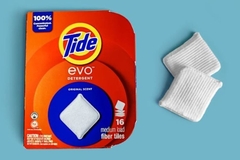Key takeaways
- The SCCS classifies tea tree oil as a “moderate skin sensitizer” and recommends its use only in four specific product types at low concentrations.
- The committee warns that tea tree oil must remain stable in formulations, as oxidation can increase allergy risk and reduce its antimicrobial effect.
- The EU is still considering classifying tea tree oil as a Reprotoxic 1B substance due to its risk of harming fertility and causing cancer.

The Scientific Committee on Consumer Safety (SCCS) has issued its final opinion on tea tree oil (TTO), deeming it a “moderate skin sensitizer” that can trigger allergic reactions. With this opinion, the SCCS reinforces the need for concentration limits and quality control.
The opinion comes as the EU is still considering classifying the essential oil as a Reprotoxic 1B substance. The SCCS opinion exists to decide whether the ingredient could still be allowed in cosmetics if that classification becomes official.
The committee says that TTO is safe only in four specific product types when used as an antimicrobial ingredient: 2% in shampoo, 1% in shower gel, 1% in face wash, and 0.1% in face cream.
The opinion applies exclusively to topical products for adults, and does not apply to aerosol or spray formats, as inhalation or accidental ingestion of airborne droplets could create other safety risks.
The committee says that the chemical composition of TTO can change “due to exposure to light, heat, air and/or moisture,” which may lead to degradation. The SCCS says the essential oil in cosmetic products must remain stable throughout its shelf life.
Moreover, the group emphasizes that stability must be actively controlled in the final product, because research shows “the composition of TTO may change considerably during storage.” Increases in p-cymene could lead to a higher allergy risk, and decreases in terpinene levels could result in weaker antimicrobial effects.
The SCCS’s assessment did not include environmental safety, meaning future regulatory discussions may still expand to address the environmental impacts of the essential oil.
Regulatory landscape
The opinion on TTO is part of a broader shift in how the EU evaluates natural ingredients in cosmetics, particularly essential oils.
Under the European Commission’s Omnibus Act, which aims to simplify chemical laws, ingredients are restricted or banned based on their hazardous properties, even when real-world exposure risks are low or not fully established.
A leaked EU document previously revealed that TTO was one of over 100 substances reviewed for possible health risks.
While previous scientific evidence debunked fears that tea tree oil is an endocrine disruptor in children, the EU document instead outlined the ingredient’s risk of harming fertility and causing cancer.













